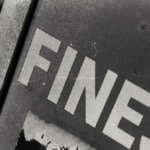A federal judge in California has granted a motion to dismiss a lawsuit filed against a collection agency that was accused of violating the Fair Debt Collection Practices Act by including the word “settlement” in a collection letter related to a time-barred debt and for saying the agency “will not sue” instead of saying it could not sue because the statute of limitations had expired.
The judge did allow for the plaintiff to file an amended complaint should he so choose.
A copy of the ruling in the case of Jones v. Synergetic Communication can be accessed by clicking here.
The plaintiff incurred a cell phone debt that was purchased by EOS CCA and placed with the defendant for collection. The defendant sent the plaintiff a letter, which included reference to a “settlement” of the debt for less than the balance owed. As well, the letter said, “[t]he law limits how long you can be sued on a debt. Because of the age of your debt, the creditor listed on the debt will not sue you for it …”
The plaintiff subsequently filed a class-action lawsuit, alleging the letter violated Sections 1692e and 1692g of the FDCPA. Section 1692e prohibits the use of false or deceptive means to collect or attempt to collect on a debt. The plaintiff alleged the letter violated Section 1692e because of the use of “will not sue” instead of saying it “can not sue” and because the letter failed to mention that any payment on the debt would restart the debt’s statute of limitations clock.
After analyzing a number of related decisions at the District and Appellate Court levels, the judge in this case ruled the use of “will not sue” would not confuse a least sophisticated consumer and therefore was not a violation of the FDCPA.
A debt collection letter’s potential to mislead the least sophisticated consumer must be assessed based on the entirety of the letter and thus a court should not myopically focus on one aspect of the letter when other language in the letter dispels such potential. … The Letter’s clarification regarding the legal limitation on the enforceability of the debt—i.e. that enforcement of the debt is legally barred—precedes the phrase “will not sue.” … In light of the disclaimer, the least sophisticated consumer would not plausibly be misled into believing that his time-barred debt is enforceable simply because the Letter uses the phrase “will not sue.”
The plaintiff also tried to argue that offering a settlement in the letter was a violation of Section 1692g of the FDCPA and overshadowed the 30-day validation notice window afforded to consumers to dispute a debt. The judge quickly dismissed the claim.









